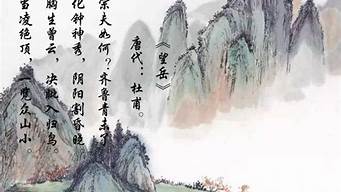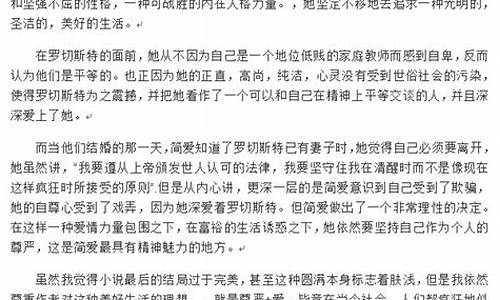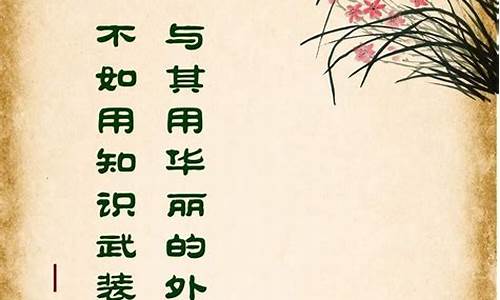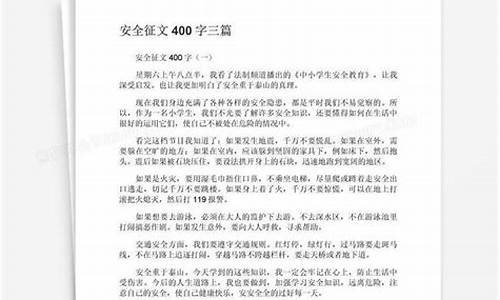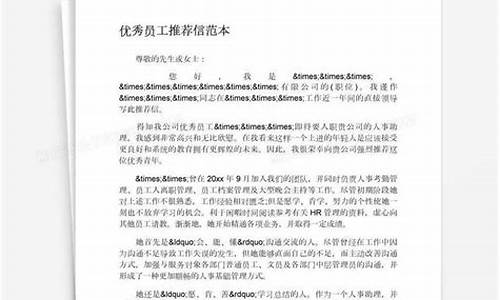英语成语故事
希望我能够回答您有关英语成语故事的问题。我将根据我的知识库和研究成果回答您的问题。
1.优秀经典成语故事中英双语?
2.英语成语故事:掩耳盗铃
3.简单四字成语英文版
4.少儿成语故事:隔墙有耳(双语)
5.英语成语故事中英对照
6.英语成语故事三篇欣赏(一年级阅读用)
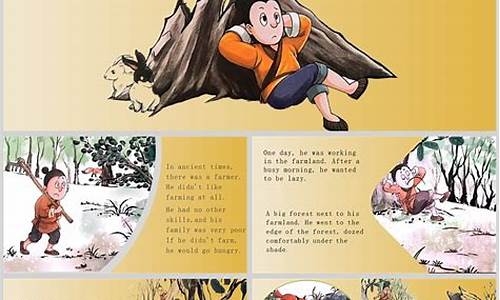
优秀经典成语故事中英双语?
如果觉得学英语觉得枯燥的话,可以加点乐趣的元素进去。我在此献上英语故事,希望对你有所帮助。
成语寓言故事:Playing the Lute to a Cow对牛弹琴
Gong Mingyi was a famous musician in ancient times, who played the lute very well.
公明仪是古代一位很有名的音乐家,弹得一手好琴。
One day, while playing the lute indoors, Gong Mingyi saw a cow eating grass leisurely outside the window. He had a sudden whim to play some melodies for the cow. He first played the "Exercise of Qing Jiao", but the cow still kept on eating grass with head lowered. He seemed to realize that the melody was too highbrow for the cow to understand.
有一天,他在室内弹琴,看见一头牛在窗外悠闲地吃著草。他忽然想弹几曲给牛听听。他先弹了一曲“清角之操”。可是,牛还是跟刚才一样,只顾低着头吃草。他似乎意识到,这支曲子太高雅了,牛没有听懂。
So he played several other melodies, imitating the buzzing sounds of swarms of flying mosquitoes, and the bleats of a calf looking for its panions. At this, to his surprise, the cow stopped eating grass, but raised its head, pricked up its ears, wagged its tail and, pacing up and down in *** all steps, began to listen attentively.
于是,他弹了另外几支曲子,模拟蚊子成群结队飞来飞去的嗡嗡声;模拟小牛犊寻找伙伴的眸眸叫唤声。这样一来,这头牛竟然不吃草了,抬起头,竖着耳朵,甩著尾巴,迈著小步,留心地倾听起来。
成语寓言故事:The Gentleman on the Beam梁上君子
One year in the Eastern Han Dynasty, there was a serious famine in I-Jenan.
东汉时的某一年,河南一带,饥荒严重。
One night, a thief sneaked into Chen Shi's house and hid himself on the beam. When Chen Shi was aware of this, he got out of bed without haste, called his children and grandchildren to his room and said in a stern voice:
一天夜里,一个小偷潜人陈宴家,躲藏在屋子的横梁上。陈宴觉察到后,不慌不忙地起了床,把儿女子孙们都叫到屋里,严厉地说:
"One must always restrain and encourage oneself no matter under what circumstances. Bad men were not born bad. It is only bee they don't restrain themselves that they develop bad habits and turn bad gradually. That gentleman on the beam is just a case in point."
“一个人无论在什么情况下,都要克制自己,勉励自己。坏人,不是天生就坏,而是因为平时不克制自己而养成了坏的习惯,才慢慢地变坏的。那位梁上君子就是这样。”
Much ashamed upon hearing this, the thief hiding on the beam promptly jumped down to the ground, kowtowed and begged for forgiveness.
躲在梁上的小偷听了,很惭愧,连忙翻身落地,磕头求饶。
Chen Shi enlightened him by saying:
陈宴开导他说:
"Judging from your appearance, you don't look like a bad man. Perhaps you are driven by poverty to steal. But you should carefully examine yourself and turn over a new leaf."
“看你的样子并不像坏人,你这样做,恐怕也是被贫困逼出来的。不过你应当好好反省,改邪归正。”
Then he immediately asked someone to bring two bolts of white silk to give the thief as a present. The thief kowtowed and thanked him repeatedly.
接着,他马上叫人拿来两匹白绢赠送给小偷。小偷不停地磕头致谢。
Since then, very few thefts occurred in this locality.
从此以后,这个地方很少发生偷盗的事情。
成语寓言故事:Cutting the Fabric to Admonish the Hu *** and断织诫夫
A long time ago, in Henan there was a young man named Le whose family was very poor.
从前,河南有个青年,名叫乐羊子,家里很穷。
One day, Le Yangzi picked up a piece of gold on the road. He happily took it home and gave it to his wife. His wife said in all seriousness:
有一天,乐羊子在路上拾到一块金子,高高兴兴地拿回家,交给妻子。妻子却一本正经地说:
"I heard that men with aspiration do not drink from the Dao ***meaning steal in Chinese*** Spring, and honest men do not take handout food. Furthermore, picked-up money and things will stain one's moral character."
“我听说,有志气的人不喝盗泉之水,廉洁的人不吃磋来之食;何况,这拾来的钱物,会玷污一个人的品德!”
Hearing this, Yangzi was very ashamed of himself. So he threw the piece of gold away in the open field.
乐羊子听了妻子的话,心里感到非常惭愧,就把金子扔到野外去了。
This incident touched Le Yangzi deeply. He made up his mind to leave home and go to a faraway place to study under a master.
这件事,对乐羊子的触动很大。他下了决心,离家去很远的地方,拜老师学习。
One year later, Le Yangzi returned home. His wife inquired why he returned so soon. Le Yangzi *** iled and said:
一年以后,乐羊子回到家里。妻子询问丈夫为什么这么快就回来了。乐羊子笑着说:
"There is no other reason except that I, being all alone away from home, miss you so much that I e back."
“没有别的原因,只是一个人在外面太想念你了,所以就回来了。”
His wife turned pale at his words. She took up a knife, ran to the silk loom, put the knife on the silk fabric woven from natural silk, and said to Le Yangzi in an agitated tone:
妻子一听,脸色变得刷白。她顺手拿起一把刀,奔到丝织机前,把刀放在蚕丝织成的绸面上,激动地对乐羊子说:
"I reeled silk strand by strand from cocoons and, with the shuttle moving to and fro, weaved it inch by inch into this bolt of silk fabric. Now if I should cut the fabric with the knife, all the previous efforts and time I've devoted would be wasted. While studying, you should always remind yourself that there is yet much more to learn. Only in this way can you cultivate a noble moral character. If you give up halfway, it will be just like cutting up this silk fabric at one stroke."
“这丝绸,是我从蚕茧缴成丝线,一丝一缕,一梭子来,一梭子去,一寸一寸地织,才织成这一匹的啊!现在,我假使一刀割断这匹丝绸,岂不前功尽弃,白白地浪费了时间吗?你呀,读书求知识,也应该随时提醒自己学得还很不够,这样才能养成高尚的品德。如果你半途而废,那么跟一刀割断这匹丝绸又有什么两样呢!”
Deeply moved by his wife's words, Le Yangzi bid farewell to her at once, went to the faraway place, and made determined efforts to study hard. He had been away from home for a good seven years, and finally succeeded in his studies.
听了妻子的这番话,乐羊子深深地感动了。他马上告别了妻子,去远方发愤攻读,整整七年没有回家,最后终于学成功了。
英语成语故事:掩耳盗铃
经典成语故事英语有凿壁偷光、悬梁刺股、掩耳盗铃等等。一、凿壁偷光
Kuang Heng was born in a poor family. He liked reading books very much. He needed to work at daytime, so he had to read books during night. But he was too poor to buy a candle.One day, he found his neighbour had candles, but the light couldn’t go through his room.?
So he dug a small hole on the wall so that he could use the light to read books. From that day, he read books every night until the light went out.
However, he finished reading all his books and there were no books for him to read. Then he went to a rich man’s house and worked for him without payment.
The rich man asked: “ Why don’t you want the money?” Kuang Heng said: “ Because I only want to borrow your books.” The rich man agreed. Kuang Heng read the books one by one.
Finally, he became a great scholar.
二、悬梁刺股
In the Eastern Han Dynasty, a man named Sun Jing was a famous politician. As a young man, he was diligent in study and often forgot eating and sleeping. When he was reading, he tied his hair to the roof beam with a rope.?
Therefore, when he dozed, he would feel pain and wake up as his hair was pulled upward by the rope, so that he would go on studying.
Su Qin in the Warring States Period was another example like Sun Jing. He felt sleepy when he was reading, so he took an awl and stabbed it into his own legs. Thus, the sudden pain would wake him up, and he could continue reading.
三、掩耳盗铃
Mr. Wang thinks he is clever, but he always does foolish things.
One day he sees a beautiful bell at the top of a door. “Oh! How nice! I will take it home.”He thinks, “What can I do?” After a while he has a “good” idea. “Aha! I have an idea now. I can plug my ears. Then I will not hear the ring when I take off the bell.”
Then he does so. But as soon as he takes off the bell, the owner opens the door. “What ate you doing?” the owner says angrily.
简单四字成语英文版
小偷找来一把大锤,拼命朝钟砸去,咣的一声巨响,把他吓了一大跳。小偷着慌,心想这下糟了,这种声不就等于是告诉人们我正在这里偷钟吗?他心里一急,身子一下子扑到了钟上,张开双臂想捂住钟声,可钟声又怎么捂得住呢!钟声依然悠悠地传向远方。
他越听越害怕,不同自由地抽回双手,使劲捂住自已的耳朵。“咦,钟声变小了,听不见了!”小偷高兴起来,“妙极了!把耳朵捂住不住就听不进钟声了吗!”他立刻找来两个布团,把耳朵塞住,心想,这下谁也听不见钟声了。于是就放手砸起钟来,一下一下,钟声响亮地传到很远的地方。人们听到钟声蜂拥而至把小偷捉住了。
故事出自《吕氏春秋·自知》“掩耳盗钟”被说成“掩耳盗铃”,比喻愚蠢自欺的掩饰行为。
plugging one's ears while stealing a bell
during the spring and autumn period,zhi bo of the spring and autumn period,zhi bo of the state of jin destroyed fan's family.taking advantage of this occasion,a man went to fan's house and tried to steal something.as soon as the man entered the gate,he saw that there hung a big bell in the courtyard.the bell was cast in high-quality bronza,and was beautiful in design and shape.the theif was very glad,and decided to carry this beautiful bell back home.but no matter how hard he tried,he could not move the bell,because the bell was both big and heavy.he thought and thought again,and believed there was only one way to solve the problem.he had to break the bell to pieces before he was able to carry them back to his home separately.
the thief found a big iron hammer,with which he struck the bell with all his might.the striking produced an enormous crashing sound,which might.the striking produced an enormous crashing sound,which made the thief terribly frightened.the thief got flurried,thinking that it was too bad to have produced the crashiing sound which would himself on the bell,trying to muffle the crashing sound with his arms.but how could the crashing sound of the bell be muffled?the crashing sound still kept drifting melodiously to distant places.the more he listened to the sound,the more frightened hw became.he xubconsciously shrank back,and covered his ears hard with his hands."hey,the sound becomes fainter,inaudible,"the thief became cheerful at once," wonderful!the sound of the bell can not be heard when the ears are covered."he immediately got some odd bits of cloth,made two rolls with them,and had his ears plugged with the two cloth rolls.he thought that in this way nobody could hear the sound of the bell.feeling relieved,he began striking the bell,one blow after another.the resounding sound of the bell was heard at distant places,and finally people caught the thief by gracing the sound.
this story comes from"knowing yourself" in the annals by buwei,written just before the qin dynasty(221-207 b.c.)was founded.allegedly,when li yuan,emperor gao zu of the tang dynasty(618-907),read this story,he felt it simply ridiculous and said,"this is what is called plugging one's ears while stealing a bell."
later,people have used the set phrase "plugging one's ears while stealing a bell" to refer to the ignorance and foolishness of the person who deceives himself as well as others.
少儿成语故事:隔墙有耳(双语)
1. 简洁的成语故事(英文版)
郑人买履(A man from the State of Zheng bought shoes)Once upon a time , a man in the State of Zheng went to the market to buy a pair of shoes. Before he left for the market, he had measured his feet with a piece me straw. However , he couldn't find the measurement because he had left it at home . So he had to say sorry to the owner that he had to go home for it, which confused the owner why he didn't try the shoes on with his own feet . The man *** iled to the owner , " I would rather believe in the measuremens than my own feet."。
2. 英语的四字成语keep somebody at arm's length, 形影不离
be on one's back, 卧病在床
make somebody's blood boil, 热血沸腾
Keep one's shirt on, 忍辱负重
Shout something from the rooftops , 登高而呼
Be all ears, 洗耳恭听
out of the blue, 猝不及防
at sixes and sevens, 乱七八糟
A bolt from the blue 晴天霹雳
love you love your dog 爱屋及乌
a bad apple, 金玉其外,败絮其中
It rains dogs and cats.倾盆大雨
Fish in trouble water.混水摸鱼
Teach fish to swim.班门弄斧
Beat the dog before the lion.杀鸡敬猴
3. 英语的四字词语繁荣昌盛thriving and prosperous爱不释手fondle admiringly爱财如命skin a flea for its hide爱屋及乌love me, love my dog. He that loves the tree loves the branch恨屋及乌:He who hates Peter har his dog.)安居乐业live and work in peace and contentment白手起家build up from nothing / build up from scratch /start from scratch百里挑一one in a hundred / the cream of the crop百折不挠be indomitable半途而废give up halfway leave sth. Unfinished包罗万象all-embracing all-inclusive饱经风霜weather-beaten卑躬屈膝bow and scrape cringe悲欢离合vicissitudes of life背道而驰run counter to run in the opposite direction本末倒置put the cart before the horse笨鸟先飞the slow need to start early必由之路the only way闭关自守close the country to international intercourse变本加厉be further intensified变化无常chop and change fantasticality 变化无常chop and change fantasticality别开生面having sth. New别有用心have ulterior motives彬彬有礼refined and courteous urbane兵不厌诈in war nothing is too deceitful博古通今erudite and informed不败之地incincible position不耻下问feel not ashamed to learn from one's subordinates不可救药be past praying for beyond redemption不劳而获reap where one has not sown不屈不挠fortitude indefatigability perseverance persevere tenacity不速之客crasher uninvited guest不同凡响outstanding不言而喻speak for itself tell its own story tell its own tale went without saying不遗余力spare no effort spare no pains不以为然not approve object to不义之财filthy lucre filthy pelf the mammon of unrighteousness不亦乐乎extremely不远千里go to the trouble of travelling a long distance不约而同happen to coincide不择手段by any kind of means by hook or crook play hard by fair means or foul不知所措be at a loss be all adrift lose one's head out of one's wits才疏学浅have little talent and learning惨绝人寰extremely cruel沧海桑田time brings a great change to the worlds沧海一粟/九牛一毛a drop in the bucket草木皆兵a state of extreme nervousness层出不穷emerge in endlessly。
4. 英语的四字成语优质解答keep somebody at arm's length,形影不离 be on one's back,卧病在床 make somebody's blood boil,热血沸腾 Keep one's shirt on,忍辱负重 Shout something from the rooftops ,登高而呼 Be all ears,洗耳恭听 out of the blue,猝不及防 at sixes and sevens,乱七八糟 A bolt from the blue 晴天霹雳love you love your dog 爱屋及乌 a bad apple,金玉其外,败絮其中It rains dogs and cats.倾盆大雨 Fish in trouble water.混水摸鱼 Teach fish to swim.班门弄斧 Beat the dog before the lion.杀鸡敬猴。
英语成语故事中英对照
walls have ears
隔墙有耳
Once upon a time, there was a curious man。
从前,有一个好奇心很重的人。
He liked to gossip about other peoples' privacy。
他总是喜欢四处打听别人的秘密。
He knew too many secrets and found it hard to keep them all。
他知道的秘密太多了,憋在心里很难受。
One day he drank several cups of wine, and while drunk spilled all the secrets。
一天,他喝了几杯酒,结果把自己打听到的事情全部说了出来。
To his surprise, the man next door heard all he said。
他没想到,隔壁房间里的人听见了他说的话。
Very soon, everyone knew of his bad habit of gossiping。
没过多久,所有人都知道了他多嘴的坏毛病。
The walls may not have ears, but the person next door does. "This idiom is often used to alert people to be careful about their words。
墙壁虽然没有耳朵,但是隔在墙另一头的人有,这个成语现在常常用来告诫人们要谨言慎行,不要说三道四。
文化链接
“隔墙有耳”形容了“墙上长了耳朵”的样子,巧的是,英语中还真的有“walls have ears”(墙壁长耳)。
据载,“walls have ears”首见于希腊。传说古希腊国王Dionysius(狄奥尼西奥斯,统治着西西里最富庶的城市Syracuse)实施*,其手中至宝 ——耳状岩洞,可以连通整个皇宫。凭借“耳朵”岩洞,皇宫里便没有秘密,所有言语全在狄奥尼西奥斯的监听范围之内。
也有说法认为,“walls have ears”始于巴黎卢浮宫。卢浮宫原为法国王宫,据说其墙壁中安装有神秘的传声管道,可供偷听使用。王后凯瑟琳摄政时期,就是靠这种“有耳”的墙壁来偷听可疑大臣的言谈的。
大约在17世纪20年代,“walls have ears”正式进入英语词汇,用以比喻秘密也会泄露,或是告诫人们说话留心,免得被偷听。
我们一起来看两个例句:
Be careful what you say; the walls have ears!
说话要小心,隔墙有耳啊!
Hedges have eyes and walls have ears。
篱笆有眼,隔墙有耳。
英语成语故事三篇欣赏(一年级阅读用)
如果觉得学英语觉得枯燥的话,可以加点乐趣的元素进去。我在此献上 英语 故事 ,希望对你有所帮助。成语 寓言故事 :Losing One's Head忘乎所以
The gorillas in the valleys in the south often lived together in groups of several tens. They were fond of drinking wine, and even fonder of imitating man's behavior.
南方山谷里的猩猩,常常数十成群地生活在一起。它们喜欢喝酒,更喜欢模仿人的行为。
People knew very well their habits and often put wine or distiller's grains on the roadside together with many straw sandals connected together with ropes.
人们掌握了它们的习性,经常把酒或酒糟放在路边,旁边又放着许多草鞋,草鞋用绳索连接起来。
The gorillas knew this was a trick to lure them into traps and cursed:
猩猩知道这是人们引诱它们上当,便破口大骂:
"Humph! Do you think we don't know your tricks? We'll never be taken in!"
?哼!你们以为我们不知道吗?我们决不上你们的当!?
So they called one another, turned round and left.
于是,互相招呼,回头就走。
But they had already smelled the aroma of the wine, and couldn't bear to part with it. Even after they left, they would turn their heads to look back. When they saw no one there, they would turn back; and after they turned back, they were afraid of being deceived, and left again. After much hesitation, they finally said to themselves:
但是,它们已经闻到了酒香,总有点恋恋不舍,就是走了,也要回过头来望望。回头望不见人,便又转过来;转过来了又怕上当,再返身回去。犹豫了好久,它们最后自言自语地说:
"Just for a taste of the wine. It won't matter as long as we don't get drunk."
?去尝尝味道,不喝醉就不碍事。?
Shortly afterwards, they agreed to come back to drink the wine. When they got drunk, they forgot everything. Every gorilla put on the straw sandals and imitated the way man walks.
不一会儿,大家同意了,都回来喝酒。等到喝醉的时候,它们一切都忘记了,一个个穿上草鞋,学着人走路。
As a result, they fell down one after another and were all caught alive by people.
结果,一个个都跌倒了,统统被人活捉。
成语寓言故事:A Half Day's Leisure半日清闲
One day, a high official wanted to amuse himself in a temple.
一天,有一个大官,要到寺院里去游玩。
His subordinates notified the monks in the temple three days in advance to prepare a good meal on time. So all the monks in the temple busied themselves with the preparation.
他的手下人便在三天前就通知寺院里的和尚,准时备好饭菜。于是,寺院里所有的和尚,都忙着张罗了起来。
The temple was situated in a remote mountain, surrounded by bamboo groves, and very tranquil. After the high official had strolled about for a while, he was very pleased. While dining, he recited lines from a poem of the Tang Dynasty:
寺院坐落在深山里,四面都是竹林,的确非常清静。大官游玩了一番之后,非常高兴,一面吃饭,一面吟起了唐人的诗句:
"Passing through the bamboo courtyard and meeting a monk,A half day's leisure is gained in this fleeting life."
?因过竹院逢僧话,又得浮生半日闲。?
When the old monk heard these lines of the poem, he couldn't help laughing.
老和尚听了诗句,不觉笑了起来。
The high official asked hastily:
大官连忙问道:
"What are you laughing about?"
?你笑什么?
The old monk replied:
老和尚回答道:
"Your Honour have indeed gained a half day's leisure, but I have been busy for three whole days."
?您老人家固然清闲了半天,可是我老和尚却已经忙了整整三天!?
成语寓言故事:The Kingfisher Moves Its Nest翠鸟迁巢
In order to avoid calamities, at first the kingfisher always selects a high place to build its nest.
翠鸟起先为了避免灾祸,总是选择高的地方筑巢。
But when the young birds are hatched, it will move to a place a little lower to build its nest. This is because the kingfisher is particularly fond of its offspring and is afraid they而ght fall down from a high place.
但是,等到孵出小鸟以后,它就到少许低一点儿的地方筑巢。这是因为它特别爱护小鸟,生怕它们从高处摔下来。
When the young birds grow beautiful feathers, the kingfisher will become even fonder of them and more protective, so it will move its nest further downward, with the result that the young birds are easily taken away by people.
等到小鸟长出了美丽的羽毛以后,母鸟就更加喜欢和爱护它们了,于是又向下搬巢,结果小翠鸟却被人们轻而易举地掏走了。
英语成语翻译与成语故事
#一年级# 导语阅读是人们最必要的学习工具之一,是通往周围世界的窗口。阅读是自学的条件,是终身学习的基础。英语阅读在提高英语学习者的英语语言能力方面发挥着不可替代的作用。以下是 无 整理的相关资料,希望帮助到您。
篇一castles in the air
空中楼阁
A rich man asked an architect to build a three-story house for him.
有一个富人让一位建筑师为他建造一个三层楼的房子。
When the first story was finished, the rich man said to the architect: “I want only the third story; not the first and second stories.”
当第一层建造好的时候,富人对建筑师说:“我只想要第三层楼,不要第一、第二层。”
The architect asked, “But without the first and second stories, how can I build the third story?”
建筑师说:“但没有第一、第二层,何来第三层呢?”
Shaking his head, he packed up his things, and left.
建筑师于是就摇了摇头,收拾东西离开了。
This idiom indicates an unrealistic or impractical plan or theory.
这个成语现在比喻不现实或者不可行的计划或者理论等。
英文中“空中楼阁”可以说成“castles in the air”,基本就是直译了,所以不难理解哦~
英文解释是“plans or hopes that have very little chance of happening”,也就是指“发生机会微乎其微的计划或者希望”。
我们来一起看几个例句吧~
She tells me she‘s planned out her whole career, but as far as I can see it’s all just castles in the air.
她告诉我她已经有了整个职业计划,但是就我看来其实只是“空中楼阁”而已。
Before you start building castles in the air, just think how much all this is likely to cost.
在你开始建立“空中楼阁”之前,不如先想想你需要付出多少代价。
篇二
a chill runs down one‘s spine
不寒而栗
During the Han dynasty (汉朝, 206BC—220AD), there was a man whose name was Yi Zong (义纵). Because of the special kindness of the mother of the emperor, Yi Zong was made a magistrate in one county.
汉武帝时,有一个人名叫义纵,因为受到太后的恩宠,做了上党郡某县令。
After taking up the official post ,he did very well in managing the official business. He was courageous and resolute in handling cases, and punished according to law anybody who violated the law, no matter whether he was a despotic gentleman who was rich and powerful or was one of the common people.
上任以后,公务办得很出色,案子处理上敢作敢为,不论是有钱有势的豪绅,还是平民, 只要犯了法,义纵秉公审办。
When Yi Zong was transferred to be the prefect of the Nanyang Prefecture (南阳郡), Ning Cheng (宁成), a despotic landlord who stopped at nothing in doing evil, was living there,in order to ingratiate himself with Yi Zong, Ning Cheng pretended to be very modest and courteous every time he met Yi Zong and saw him off.
当义纵被调任到南阳郡做河内郡都尉,当地的恶霸宁成为了讨好义纵,所以每次遇见义纵总是假装成非常谦逊恭敬的样子。
But Yi Zong had heard of the evil conducts of Ning Cheng already and, soon after he took office in Nanyang,he made investigations. It did not take much time for him to find out Ning cheng’s crimes and had him put in prison.
但是,义纵对他的恶行早有所闻,到南阳后立即展开调查,很快就查清他的罪行,把他关押起来。
Later, Emperor Wu Di (汉武帝) of the Han Dynasty appointed Yi Zong the prefect of the Dingxiang Prefecture (定襄).
后来,汉武帝又任命义纵做定襄太守。
At that time, the public order in Dingxiang was very chaotic. When he took office there, there were 200 convicts in prison who had committed felonies had no implements of punishment on them.There were also more than 200 persons who offered bribes in order to absolve those serious offenders from guilt.Yi Zong treated the matter severely. He arrested all those bribers and punished the bribers and those serious offenders already in prison severely. More than 400 convicts were executed in a day.
当时定襄的社会治安十分混乱。义纵到任以后,把押在狱中的没有加开具的二百多名重犯,以及为重犯开脱罪责进行贿赂的二百多名门客亲属,一律严加追究,拘捕治罪,一天之内处死的就有四百多名。
From that day on, whenever the name of Yi Zong was mentioned,people in Dingxiang would tremble with fear --they would shiver all over though not cold.
从此以后,定襄的人一听到义纵的名字就“不寒而栗”——天气不冷却浑身发抖。
英文中“不寒而栗”可以说成“a chill runs down one‘s spine”,“spine”就是“脊椎”的意思,那这个短语也就是“一股寒气从脊椎流下”的意思啦~
平时看了恐怖片或是听了鬼故事后,我们常会说“身后感到一阵发凉”,这样想也就不难理解了,也就是“不寒而栗”的意思。
篇三
Look at someone with new eyes/knock the socks off someone
刮目相看
Lv Meng (lǚ méng 吕蒙) was a general of Wu during the Three Kingdoms Period (三国时代,220-280AD).
三国时期(220-280),吴国有一个叫吕蒙的将军
He was born in such a poor family that he did not get any chance to go to the school when he was a child.
吕蒙出生在穷苦人家,小时候没有机会上学。
However, there was still less time for reading when he served in the army after he grew up.
长大后他参了军,看书的时间更少了。
Once the king of Wu summoned Lv Meng and said to him, “Since you are now a general in power, you had better read some books to widen your horizon.”
一次,吴国的皇帝召见吕蒙,对他说:“现在你是大将军了,应该多看看书开阔眼界。”
Lv Meng answered, “I am so busy with military affairs that I am afraid I have little time to read.”
吕蒙回答道:“军中的事务这么忙,我恐怕没有时间读书。”
The King said, “Are you busier than I am? Even I often find time to read books on the art of war and gain much benefit from them. To read more about the experience left by our ancestors will make you progress.”
吴国的皇帝说:“你难道比我还忙吗?我常常抽空阅读兵书,从中得到了不少好处。多看看前人的经验之谈,你会有更大的进步。”
Lv Meng then did according to what the king said. He concentrated himself on reading history and military writings.
吕蒙接受了皇帝的建议,从此开始专心阅读,看了很多历史和军事书籍。
On day, Military Governor Lu Su visited Lv Meng and was surprised to find that Lv Meng had become very knowledgeable.
一天,主帅鲁肃来拜访吕蒙,惊讶地发现吕蒙变得很有学问。
Lu Su, who held Lv Meng in contempt earlier, said, “I did not expect that you would know so much besides fighting! You are not the one you used to be!”
曾经非常轻视吕蒙的鲁肃说:“我以为你只会打仗,没想到你这么博学。你已经不是过去的那个吕蒙了!”
Lv Meng replied, “You should look at a person with new eyes even only after a three days‘ separation.”
吕蒙回答道:“即使你和别人只分开了三天,三天后再遇到他时也不能用三天前的老眼光来看待他。”
Today, when a person does something that causes others to see him differently, we can say that people “look at him with new eyes.”
今天,当一个人做了某些事,令别人另眼相待时,我们就可以说,对他“刮目相看”了。
英语中有一个与“刮目相看”意义大致相近的短语,叫做“knock the socks off”,直译就是“把~的袜子都撞掉了”,也就是让某人刮目相看的意思啦。同样的,如果别人让你刮目相看的话,你也可以说:“Hey,dude~You really knocked my socks off!”
Next quarter I really want to knock the socks off the competition.
下一季我非常希望可以让竞争对手刮目相看。
掩耳盗铃英文版故事
英语中的 成语 和汉语中的一样,也是十分丰富的,其中不少都有 典故 。接下来,我给大家准备了英语成语翻译与 成语 故事 ,欢迎大家参考与借鉴。英语成语翻译与成语故事
1. give a lick and a promise 敷衍搪塞
这条成语直译为“先舔一下再做承诺”。它出自一则英国民间 传说 。至少两个世纪以前有一只猫,它的脸常常脏得很,每当别的猫要它洗脸时它就用舌头很快舔一下,然后保证说下次一定弄干净,但实际只是敷衍了事。后来这个说法就被用来表示“工作马虎、敷衍搪塞”。例如:
You didn?t wash your hands; you just gave them a lick and a promise. (你根本没洗手,只不过敷衍了事。)
2. bury the hatchet1 偃旗息鼓
字面意思是“埋下斧子”。北美殖民时期,英国殖民者残忍地屠杀印地安人,其歼灭方式惨无人道。有的被放在柴堆上活活烧死,有的剥下死难者的头皮,谁剥的多,谁的功劳最大。他们有时为了欺骗和麻痹印地安人,也会和某个部落讲和。在和谈仪式上,印地安人会把斧头埋在地下表示休战和解,因为对于印地安人来说,斧头是他们主要的武器,这种方式比任何条款都更有意义和约束力。现在人们就用bury the hatchet来表示消弭干戈,休战和好。
They had been enemies for ages, but after a fight they buried the hachet. (他们敌对多年,但一场搏斗后却和解了。)
3. by the cut of one's jib 从外表上看
这一成语出自十七世纪前后航海事业高速发展的时代。当时海上航行的大多为帆船上常用一个三角形小帆(jib)挂在前桅作为标志。由于各国对三角帆的裁剪方式(cut)不同,船长可依此判定船的国别。然而当时海盗猖獗,他们往往打 着某过活的旗号进行抢劫,上当受骗的也大有人在。例如:
I see you are a sailor by the cut of your jib. (我从外表上能看得出来你是个水手。)
4. backstairs influence 暗中势力,幕后人物
直译为“后楼梯的影响”。过去英国王宫内上楼的楼梯往往有好几处,正常朝觐的人当然从前楼梯上去。可有些秘密来访者为避人耳目则从后楼梯上去。后楼梯本来是供仆人、侍从用的,秘密来访者为了上楼不免拉拢或贿赂一下他们,从而直接觐见,暗中对君主施加影响。如今王室已经没落,但这个成语却渗透到政治和经济生活中。例如:
He met the congressmen in secret to exert backstairs influence. (他秘密会见了议员,暗中对他施加影响。)
这只是小小的一部分,多了解成语背后的故事对于我们熟悉英语国家的历史 文化 是十分有益的。
扩展:"你说的没错!"的译法
“Say”在英语中是十分常用的单词,我们几乎每天都离不开它,但它与汉语中“说”的意思不完全一致,在许多情况下有其习惯的用法。例如这一段对话:
-The new hat looks so funny!
-I'll say!
大家一定会觉得如果照字面意思去理解,这句话就说不通了。实际上,“I'll say!”表示同意对方的话,可以翻译为“你说的没错!/可不是吗!/那当然!”甚至可以更口语化,翻译为“你别说,还真是的”。
表示赞同对方的话的表达方式还有不少,例如“You said it.”或“You can say that again.”,当然这与“叫对方再说一遍”(Please repeat it./I beg your pardon.)有本质区别,要多加注意。另外还可以说“I wouldn?t say no.”(我不反对。)而“I say!”则常用于开头以引起对方注意,相当于“听着!”。“Just say the word.”的意思是“只要你说一声(我就会做到的)。”
“Say”的含义是很丰富的,不仅仅表示一般的“说”。“say one?s prayer”是“祈祷”;“say one's lesson”是“背课文”;“What does the slogan1 say?”的意思为“ 标语 是怎么说的?”;“My watch says five o'clock.”指“我的表是五点钟。”;“What do you say to a cup of coffee?”则询问“来杯咖啡如何?”;而“I can?t say.”则常常表示“我不知道。/不好说。”“say much for?”的意思是“认为什么非常好”,例如“I can?t say much for his argument.”(我对他的论点不敢恭维。)
相关 文章 :
1. 中国成语故事的英文版
2. 小学英语成语故事阅读
3. 适合小学生的英语成语故事
4. 儿童英语成语故事阅读
5. 成语故事英文精选
6. 以牙还牙的成语故事和解释
?
Ⅰ 掩耳盗铃的故事掩耳盗铃的故事:从前有个自私愚蠢的人,他很喜欢占人便宜,有一天他看中了一家专大门上挂的属铃铛,想要偷走,但是铃铛一碰就有声响,于是他就捂着自己的耳朵去摘铃铛,谁知他刚碰到铃铛,铃铛就发出了声响,主人就抓住了他。
Ⅱ 英文成语故事——掩耳盗铃
耳盗铃 -Ostrich Logic (Yan Er Dao Ling)
At the time when Fan, a nobleman of the state of Jin, became a fugitive, a moner found a bell and wanted to carry it off on his back. But the bell was too big for him. When he tried to knock it into pieces with a hammer there was a loud clanging sound. He was afraid that someone will hear the noise and take the bell from him, so he immediately stopped his own ears.
To worry about other people hearing the noise is understandable, but to worry about himself hearing the noise (as if stopping his own ears would prevent other people from hearing) is absurd.
Ⅲ 我想要掩耳盗铃故事的英文版本
Plugging One's Ears While Stealing a Bell
During the Spring and Autumn period,Zhi Bo of the Spring and Autumn period,Zhi Bo of the State of Jin destroyed Fan's family.Taking advantage of this occasion,a man went to Fan's house and tried to steal something.As soon as the man entered the gate,he saw that there hung a big bell in the courtyard.The bell was cast in high-quality bronza,and was beautiful in design and shape.The theif was very glad,and decided to carry this beautiful bell back home. But no matter how hard he tried,he could not move the bell, because the bell was both big and heavy.He thought and thought again, and believed there was only one way to solve the problem.He had to break the bell to pieces before he was able to carry them back to his home separately.
The thief found a big iron hammer, with which he struck the bell with all his might. The striking proced an enormous crashing sound, which might. The striking proced an enormous crashing sound, which made the thief terribly frightened. The thief got flurried, thinking that it was too bad to have proced the crashiing sound which would himself on the bell, trying to muffle the crashing sound with his arms. But how could the crashing sound of the bell be muffled? The crashing sound still kept drifting melodiously to distant places. The more he listened to the sound, the more frightened hw became. He xubconsciously shrank back, and covered his ears hard with his hands." Hey, the sound bees fainter, inaudible,"the thief became cheerful at once," wonderful! The sound of the bell can not be heard when the ears are covered."He immediately got some odd bits of cloth, made o rolls with them, and had his ears plugged with the o cloth rolls.He thought that in this way nobody could hear the sound of the bell.Feeling relieved,he began striking the bell,one blow after another.The resounding sound of the bell was heard at distant places,and finally people caught the thief by gracing the sound.
This story es from"Knowing Yourself" in The Annals by Buwei,written just before the Qin Dynasty(221-207 B.C.)was founded.Allegedly,when Li Yuan,Emperor Gao Zu of the Tang Dynasty(618-907), this story,he felt it simply ridiculous and said,"This is what is called plugging one's ears while stealing a bell."
Later,people have used the set phrase "plugging one's ears while stealing a bell" to refer to the ignorance and foolishness of the person who deceives himself as well as others.
Ⅳ 掩耳盗铃的故事 缩写
掩耳盗铃(缩写):
春秋抄时候,晋袭国贵族智伯灭掉了范氏。有人趁机跑到范氏家里想偷点东西,看见院子里吊着一口大钟。钟是用上等青铜铸成的,非常的美丽和贵重,小偷很想将之偷回家去,可是钟又大又重,他搬不动。他想到了一个办法,那就是把钟敲碎,然后再分别搬回家。
小偷找来一把大锤子,拼命朝钟砸去,可是声音很大,他自己都吓一跳。小偷着急了,心想这下糟了,这钟声不就等于是告诉人们我正在这里偷钟吗?他心里一急,身子一下子扑到了钟上,张开双臂想捂住钟声,可钟声又怎么捂得住呢!钟声依然传向远方。 他越听越害怕,不由自主地抽回双手,使劲捂住自已的耳朵。“咦,钟声竟然变小了!”小偷很高兴,“原来把耳朵捂住不就听不进钟声了!”他立刻找来两个布团,塞住了耳朵,心想这下谁也听不见钟声了。于是就肆无忌惮的砸起来,可是钟声依然传到了很远的地方,很多人敢来将小偷抓住了。
Ⅳ 用英语讲述掩耳盗铃的故事五十词左右初一的作文 带翻译
方法错了。
英文写的不是中国的事情,中国的事情用中文。英文学的应该是外国的事情,写的也是外国的事情。否则,将来怎么拿英文来学《外国的先进科学技术》呢?难道用英文来学《中国的先进科学技术》吗?
就是把中国的古代的故事介绍给外国也不行啊!中国有古代的时候,外国还没英文呢!
不是针对楼主,方法错了,将来思维就错了,很难改的!
Ⅵ 用英语翻译《掩耳盗铃》这个故事
to plug one's ears while stealing a bell; to deceive oneself; to bury one's head in the sand; to play the ostrich
Ⅶ 现代版的掩耳盗铃的小故事
从前,有一个人很愚蠢又很自私,他还有一个爱占便宜的坏毛病。凡是
他喜欢的东西,总是想尽办法把它弄到手,甚至是去偷。有一次,他看中了一家大门上挂的铃铛。这只门的铃铛制作得十分精致,
好看,声音也很响亮。他想,怎么样才能弄到手呢?最后决定,把它偷走。
他知道,只要用手去碰这个铃铛,就会"叮零叮零"地响起来。门铃
一响,耳朵就会听到铃铛的响声,有了响声,就会被人发现了。那可就得不
到铃铛了。那怎么办呢?
他突然想出了一个办法。他认为,门铃一响,耳朵就会听见了
,如果把自己的耳朵掩住,不是就听不见了么?于是,他自作聪明地采用这
个方法去偷门铃。
有一天晚上,他借着月光,蹑手蹑脚地来到这家大门前。他伸手
向上摘铃铛,但是,门铃挂得太高了,怎么也够不着,他只好扫兴地回来了。
回到家,他又想该怎么办呢?
他想叫邻居聋子一起去偷铃铛,踩着他的肩膀就能够摘到铃铛了。
可是又怕别人不干,不和他一起偷东西,只好自己踩着凳子摘铃铛吧。
第二天晚上,他带着凳子,又蹑手蹑脚地来到这家大门口。他踩
着凳子,一手掩住自己的耳朵,一手摘这只铃铛。谁知他刚碰到铃铛,铃铛响了,
这家主人发觉后,就把他抓住了。因为别人的耳朵并没有被掩住,仍然能
够听到铃铛的响声。
Ⅷ 用英语翻译《掩耳盗铃》这个故事
Once upon a time there was a stupid man. His neighbor bought a nice bell. The stupid man liked it very much and wanted to steal it. One silent night, he went to his neighbor’s house. He tried to get the bell off. But the bell rang the moment he touched it. He was afraid that someone would hear it. So he covered his ears and got the bell down. When he was placent about his cleverness, a lot of people came to the gate and caught him.
好了,今天关于“英语成语故事”的话题就讲到这里了。希望大家能够通过我的介绍对“英语成语故事”有更全面、深入的认识,并且能够在今后的实践中更好地运用所学知识。
声明:本站所有文章资源内容,如无特殊说明或标注,均为采集网络资源。如若本站内容侵犯了原著者的合法权益,可联系本站删除。

